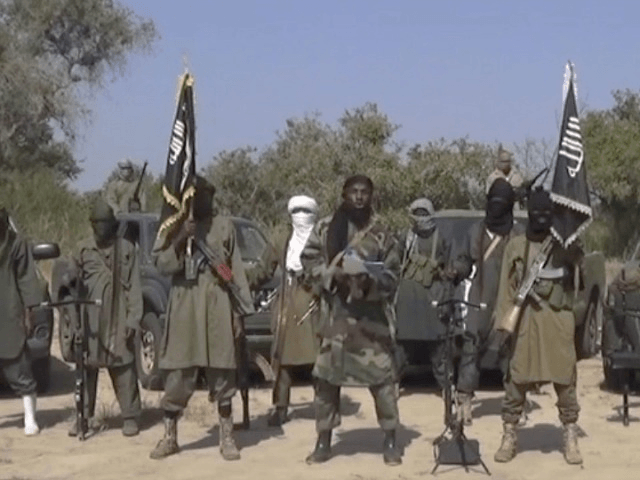In a judicial proceeding Nigeria’s courts have deemed unprecedented, the federal government announced it would begin to process 700 Boko Haram suspects awaiting trial at a military detention proceeding on Monday.
The Kainji military facility counts “at least 1,000 suspected members” of Boko Haram among its inmates, according to Nigeria’s Daily Trust newspaper. Abuja has begun moving towards the rapid processing of these individuals in order to lift as much of the burden on the nation’s weakened military as possible. According to the newspaper, almost half of those detained—”about 468 persons”—”are expected to be released for want of evidence.”
Nigeria’s Justice Ministry has vowed to allow an open trial for these individuals after criticism for processing them in secret and banning journalists from documenting the event, Reuters notes. “Unlike the first phase which was restricted, this phase is opened with some civil society groups, including human rights organizations and journalists invited to witness the proceedings,” the court clarified in a statement.
The first round of trials processed over 1,600 people at once. The 468 believed to be prepared for a tentative release—the suspects will be required to undergo anti-radicalization training—appeared before the court in October during that first round. Agence-France Presse notes 82 people pleaded guilty to charges of aiding the Islamic State affiliate.
Speaking to the Nigerian newspaper Vanguard, attorney general special adviser Comrade Salihu Othman Isah explained that trials began Monday after the completing of a discovery window that began after the October hearing. “He explained that it was expected that suspects with prima facie cases would be prosecuted, while others without it would have applications made for their discharge,” Vanguard notes. Those who have completed their judicial process, either by pleading guilty or completing a trial, are currently receiving prison sentences.
Processing the hundreds of Boko Haram suspects detained is a pivotal part of Abuja’s efforts to support its repeated claims that the jihadist group no longer poses a threat to the country. As early as December 2015, Nigerian President Muhammadu Buhari insisted that “technically, we have won the war” against Boko Haram. While suicide bombings and village raids remained a staple of life in northeastern Nigeria for the next three years, Buhari once again announced a total defeat of Boko Haram in his New Year’s address in January. Hours later, Boko Haram terrorists razed dozens of homes in Koffa, a village in northeast Borno state, and a man claiming to be Boko Haram leader Abubakar Shekau released a video insisting he was alive and well and his group was thriving.
Despite these failures, the Nigerian military continues to feed national media success stories against the terrorist group. On February 3, Vanguard reported that the Nigerian military rescued at least 84 Boko Haram captives, including pregnant women and children, from a Boko Haram outpost in which soldiers found and confiscated a stolen military tank. The military claims it has accepted the surrender of over 2,300 Boko Haram terrorists in the last year.
On Tuesday, the Daily Post, another Nigerian newspaper, cited military sources confirming that an operation in the Sambisa forest, Boko Haram’s last known hideout in the country, resulted in the rescue of 46 more captives.
“During a fierce offensive which was supported by Nigerian Air Force … the resilient troops neutralized quite a number of Boko Haram terrorists and captured major armaments, including 2 Spartan Armoured Personnel Carriers (APC), 1 Canter truck and 1 Laptop computer belonging to the insurgents,” a military spokesman told the newspaper.
Boko Haram has abducted an estimated thousands of women and children and killed over 20,000 people since 2009. Many of those abducted are used as sex slaves or child soldiers, and many girls are forced into serving as suicide bombers, mostly in Borno state but also throughout the Lake Chad region of western Africa.

COMMENTS
Please let us know if you're having issues with commenting.